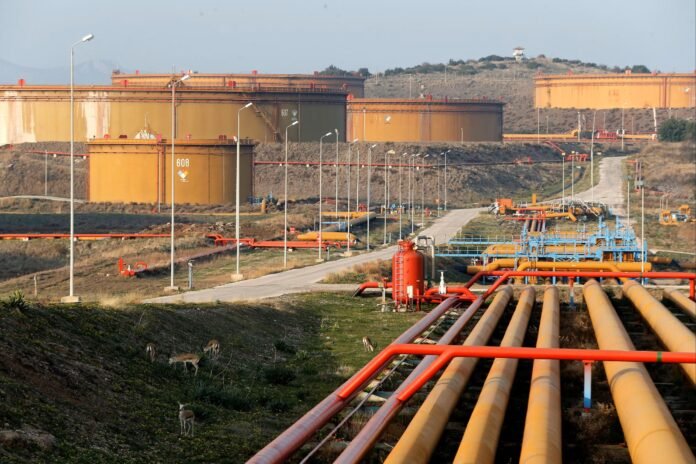Turkey will officially end the Turkey Iraq oil pipeline agreement, signed in 1973, in 2026. On Monday, Turkey announced this decision through a presidential decree. The government published the decree in Turkey’s official gazette, confirming the end of this long-standing pact.
The original deal, signed on July 27, 1973, laid the foundation for the crude oil pipeline between Iraq and Turkey. This pipeline transported millions of barrels of Iraqi oil to the Turkish port of Ceyhan on the Mediterranean Sea. Since then, it became a crucial route for oil exports from Iraq.
However, the Turkey Iraq oil pipeline became a subject of dispute after the Kurdistan Regional Government (KRG) began exporting oil independently through the pipeline. Baghdad opposed this move, arguing it violated Iraq’s constitution. This disagreement led to arbitration between Iraq and Turkey.
Since March 2023, crude oil shipments through the pipeline have been suspended. This route once accounted for nearly 0.5 percent of the world’s oil supply, making it significant in global markets.
The International Chamber of Commerce (ICC) in Paris ruled against Turkey, stating that Ankara had violated the 1973 treaty by allowing oil exports without Baghdad’s approval. Consequently, Turkey must pay Baghdad $1.5 billion in compensation for losses from illegal oil exports by the KRG between 2014 and 2018.
Despite this, talks have accelerated in 2025. The Iraqi cabinet approved a new oil agreement between Baghdad and the KRG in July. This progress may pave the way for restarting oil exports.
With the Turkey Iraq oil pipeline agreement set to expire in 2026, both countries are expected to negotiate a fresh framework. These talks will likely focus on enhancing cross-border energy cooperation.
In conclusion, ending the 1973 agreement marks a new chapter in Iraq-Turkey energy relations. The coming negotiations will shape the future of oil trade and regional collaboration.


